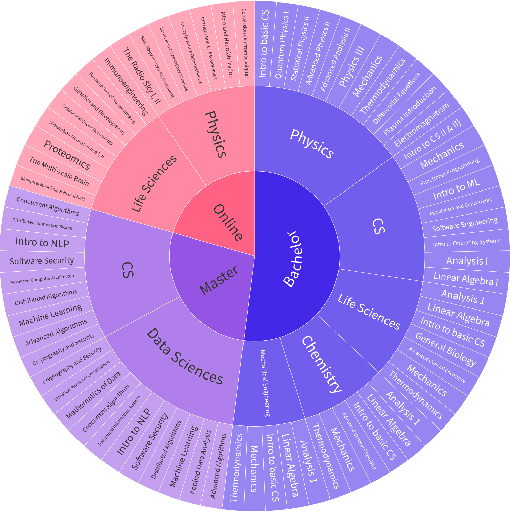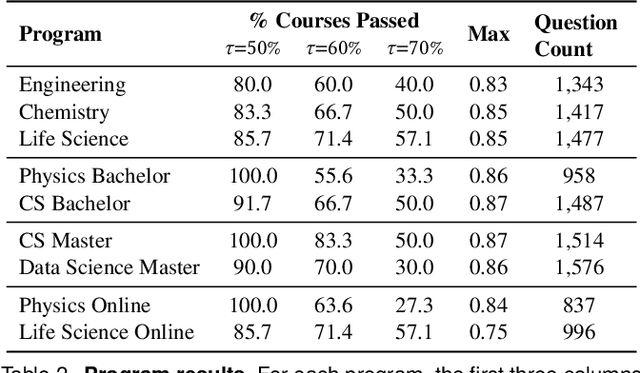Solal Pirelli
Towards Safer Heuristics With XPlain
Oct 19, 2024



Abstract:Many problems that cloud operators solve are computationally expensive, and operators often use heuristic algorithms (that are faster and scale better than optimal) to solve them more efficiently. Heuristic analyzers enable operators to find when and by how much their heuristics underperform. However, these tools do not provide enough detail for operators to mitigate the heuristic's impact in practice: they only discover a single input instance that causes the heuristic to underperform (and not the full set), and they do not explain why. We propose XPlain, a tool that extends these analyzers and helps operators understand when and why their heuristics underperform. We present promising initial results that show such an extension is viable.
Could ChatGPT get an Engineering Degree? Evaluating Higher Education Vulnerability to AI Assistants
Aug 07, 2024



Abstract:AI assistants are being increasingly used by students enrolled in higher education institutions. While these tools provide opportunities for improved teaching and education, they also pose significant challenges for assessment and learning outcomes. We conceptualize these challenges through the lens of vulnerability, the potential for university assessments and learning outcomes to be impacted by student use of generative AI. We investigate the potential scale of this vulnerability by measuring the degree to which AI assistants can complete assessment questions in standard university-level STEM courses. Specifically, we compile a novel dataset of textual assessment questions from 50 courses at EPFL and evaluate whether two AI assistants, GPT-3.5 and GPT-4 can adequately answer these questions. We use eight prompting strategies to produce responses and find that GPT-4 answers an average of 65.8% of questions correctly, and can even produce the correct answer across at least one prompting strategy for 85.1% of questions. When grouping courses in our dataset by degree program, these systems already pass non-project assessments of large numbers of core courses in various degree programs, posing risks to higher education accreditation that will be amplified as these models improve. Our results call for revising program-level assessment design in higher education in light of advances in generative AI.
 Add to Chrome
Add to Chrome Add to Firefox
Add to Firefox Add to Edge
Add to Edge